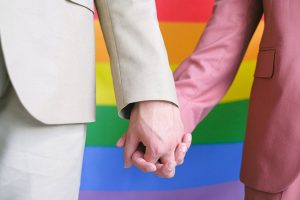Issues pertaining to the legal workplace protections of LGBTQ workers are going to be entering the domain of the U.S. Supreme Court in the next several years. The good news is that most Americans believe LGBTQ workplace should be unlawful. However, at the time the annual GLAAD 2020 Acceptance Acceleration study was conducted earlier this year, most respondents didn’t realize it was still legal at the federal level.
The good news is a landmark ruling by the U.S. Supreme Court has turned the tide decisively in the favor of LGBTQ rights. However, with a new conservative-leaning bend to the SCOTUS, it’s unclear what we can expect in future LGBTQ discrimination challenges.
Californians live in one of 23 states that have their own non-discrimination protections (under the California Fair Housing and Employment Act). But residents and workers in 27 other states lacked such protections formally.
As longtime advocates and allies for LGBTQ rights in the workplace, our Los Angeles employment lawyers think perhaps part of the dissonance between the majority of Americans who agree these rights are important yet didn’t know they existed (yet) is the notion that the SCOTUS ruling on marriage equality was somehow the finish line. In reality, we’ve still got farther to go.
The Bostock Ruling
One decision that is hopeful as we look to upcoming SCOTUS rulings was the precedent set in the June 2020 ruling of Bostock v. Clayton County, GA. This was a compilation of cases, each of which involved employers who alleged terminated long-time employees for being homosexual or transgender. In one case, an employee was fired for “unbecoming conduct” after participating recreationally in a gay softball league. Another was fired just days after mentioning he was gay. A funeral home fired a woman who presented as male when she was first hired, but later changed her gender identity.
The workers sued alleging violation of their rights under Title VII of the Civil Rights Act of 1964, which bars sex workplace sex discrimination. The U.S. Court of Appeals for the Eleventh Circuit disagreed, finding federal doesn’t protect workers from being fired if they are gay. In handling the other cases, though, the Second and Sixth Circuits found just the opposite.
The Trump administration’s Justice Department argued in an amicus brief against using Title VII to protect gay, lesbian, bisexual and transgender workers. This was despite the EEOC’s stated position that Title VII could and should extend these protections.
The U.S. Supreme Court sided with the Second and Sixth Circuits: An employer who fires an employee simply for being gay or transgender violates Title VII.
Although Bostock was a landmark ruling, it still doesn’t address things like dress codes, locker room or bathroom access. There’s also still the potential for Title VII exemption for religious employers or even from other employers citing religious liberty/First Amendment issues. It also doesn’t address the ban on military service by transgender workers, health benefits for same-sex couples and fair housing. Here again, California law extends some additional protections, but it’s better for everyone if they’re available uniformly.
The majority opinion in Bostock was written by Justice Neil Gorsuch, with Justice Alito filing a dissenting opinion joined by Justice Thomas and Justice Kavanaugh filing his own dissent. Of course, this was before the death of Justice Ruth Bader Ginsberg and her subsequent replacement by conservative Justice Amy Coney Barrett. The big concern now is whether the court will deviate from this precedent now that these new dynamics are in place.
Contact the employment attorneys at Nassiri Law Group, practicing in Orange County, Riverside and Los Angeles. Call 949-375-4734.
Additional Resources:
 Orange County Employment Lawyers Blog
Orange County Employment Lawyers Blog

